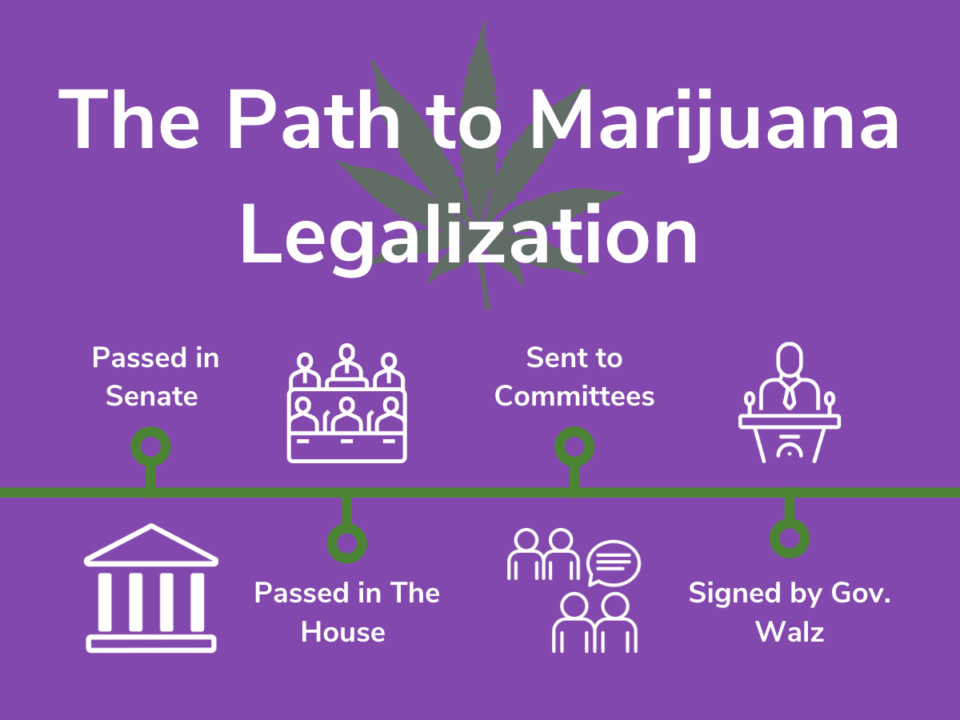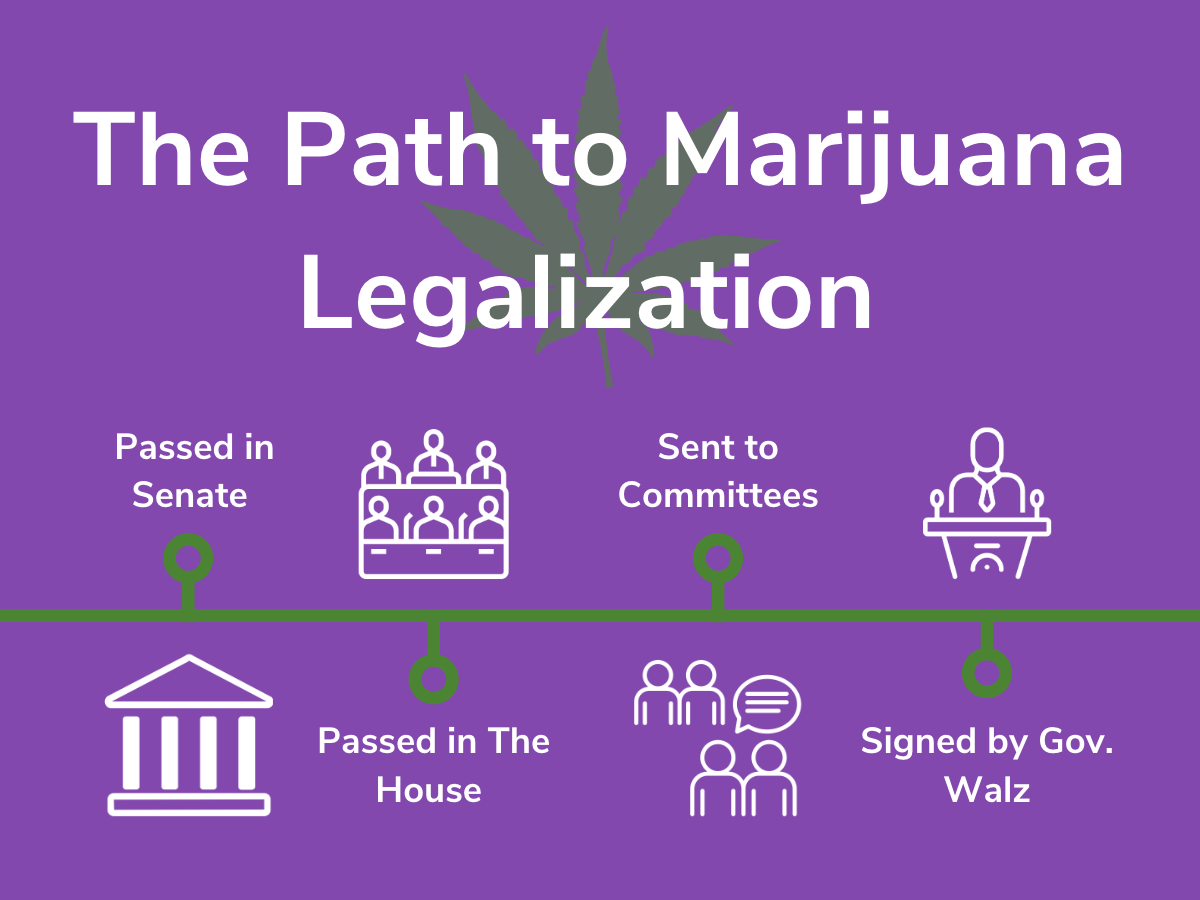
Minnesota is slated to pass a marijuana bill once it reaches Gov. Tim Walz’s desk by the end of the legislative session. The bill was passed by the majority Democrat House and Senate and is now in committees, after which it will head to Walz’ desk, who has previously vowed to sign the bill.
The bill is likely to pass by the end of the Minnesota legislative session, May 22. The bill would legalize all forms of marijuana on August 1 and expunge the records of some previously convicted of marijuana possession, according to Mark Osler, a professor of law at St. Thomas.
“Right now as (the bill) goes to conference committee, it looks like the question isn’t whether or not we will get it passed, but what the shape of that will be,” Osler said.
Some topics still being decided on in committees are the tax rate on marijuana and how much control cities will have over dispensaries. Some municipalities may be able to accept or reject having dispensaries at all, according to Osler.
Some students, like first-year Max Gaytko, are excited about the opportunities the legalization of marijuana could bring to Minnesota.
“I’m really excited about all the opportunities it’s gonna bring, whether that be recreationally, jobs or fun things like food items,” Gaytko said.
Gaytko hopes to work at a dispensary one day.
The bill is also set to expunge misdemeanors for marijuana possession, in a state where drug offenses make up 17.3% of the prison population, according to the Minnesota Department of Corrections. Whether people with marijuana-related felonies would be expunged is still in committees, according to Osler.
Black people are also 7.1 times more likely to be arrested for marijuana possession than white people in Ramsey County, according to the American Civil Liberties Union.
Law enforcement is often against the decriminalization of marijuana because it limits police ability to stop people for other crimes, according to Osler. However, he said the bill could provide some benefits to law enforcement officers.
“(The bill) allows law enforcement to concentrate on other drugs, … like fentanyl,” Osler said.
Gaytko is excited about the bill’s effect on the criminal justice system.
Gaytko said he hopes the bill will help people in prison for marijuana possession, “especially for those with minor drug offenses to get their life back on track.”
The bill, if passed, would go into effect on August 1. As for St. Thomas, there is no word yet on whether marijuana would be allowed on campus. Any new rules will be discussed over the summer with St. Thomas officials, according to Dean of Students Linda Baughman.
Currently, according to the Residence Life Handbook, “the University does not permit the use, possession, distribution, or manufacturing of illegal drugs and other controlled substances, including marijuana, or drug paraphernalia except as permitted by law.”
Anya Capistrant-Kinney can be reached at capi2087@stthomas.edu.



